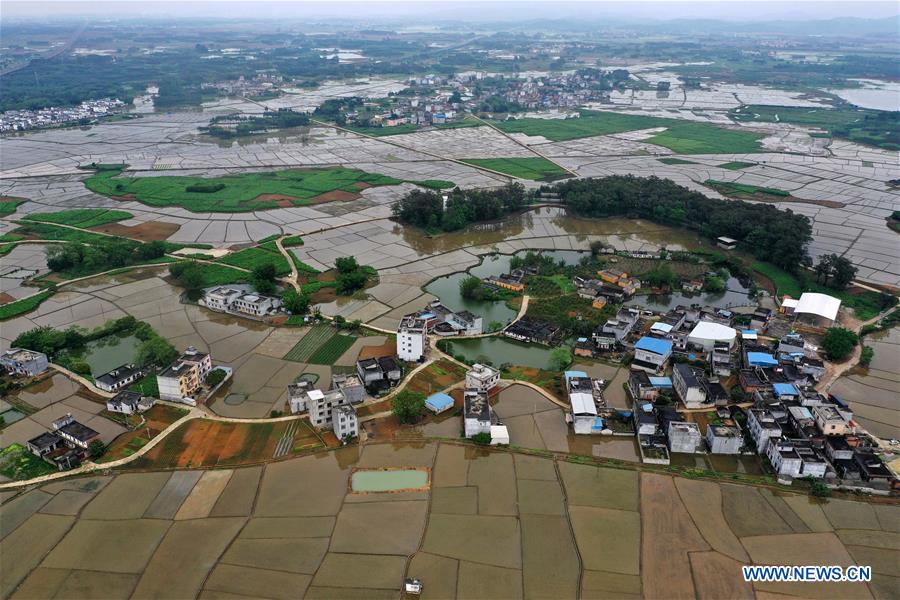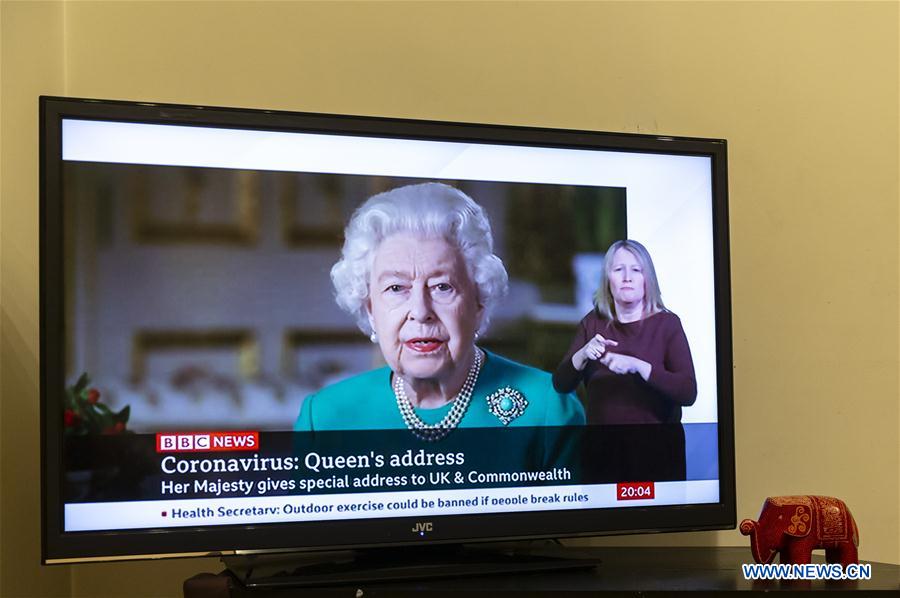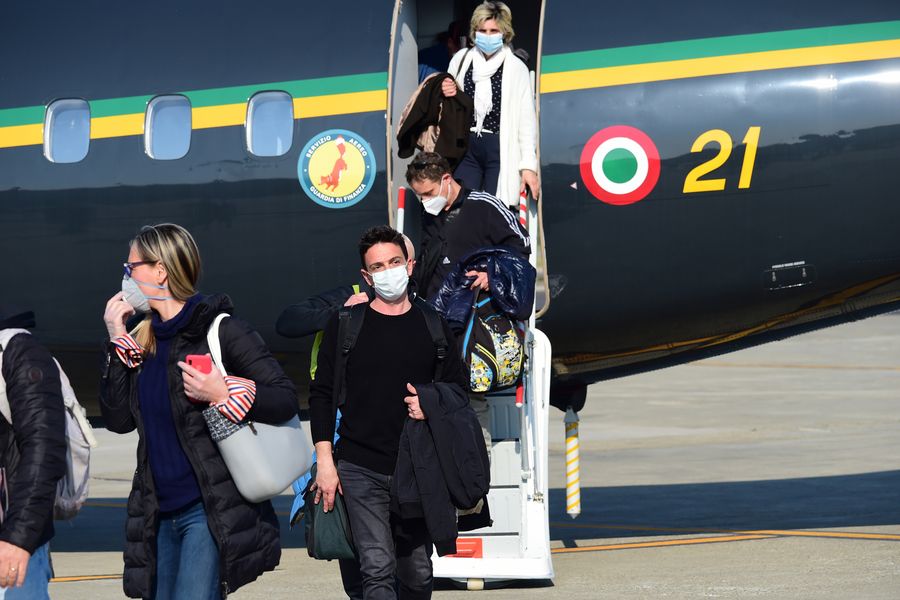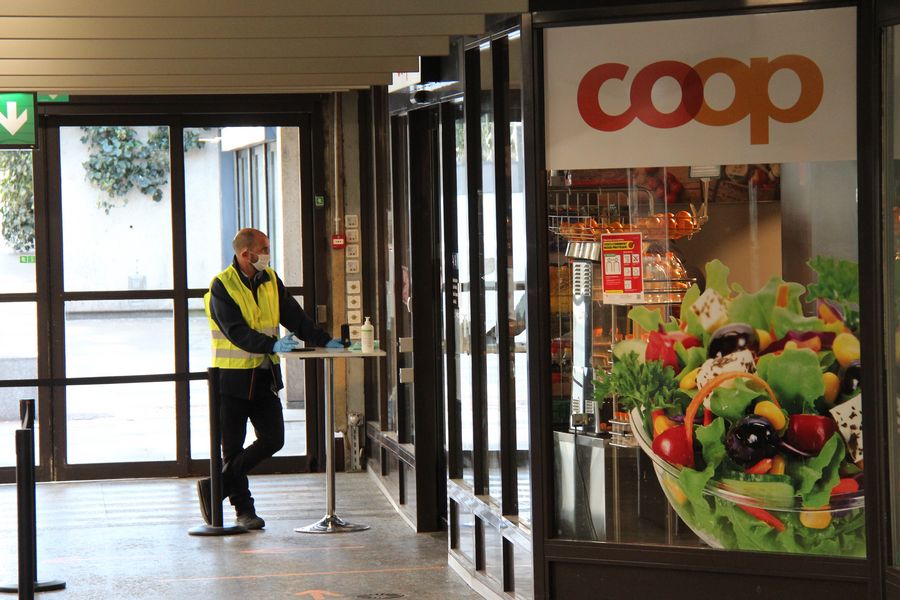
A woman walks on a street in Turin, Italy, on April 4, 2020. Between Saturday and Sunday, the COVID-19 death toll in Italy was 525, the lowest one-day total since March 19, when COVID-19, the disease caused by the coronavirus, claimed 427 lives. (Photo by Federico Tardito/Xinhua)
BEIJING, April 6 -- There are now nearly 1.3 million cases of the novel coronavirus with close to 70,000 deaths reported around the world as the pandemic rages.
As of 0300 GMT Monday, nations and regions reported a total of 69,444 deaths from COVID-19, along with 1,273,990 confirmed cases, while more than 260,000 people have recovered, an interactive map maintained by Johns Hopkins University's Center for Systems Science and Engineering showed.
SURGING CASES, DEATHS
The United States recorded more than 1,200 deaths from COVID-19 in the past day, bringing the death toll in the country to more than 9,600, Johns Hopkins University said Sunday evening.
There are more than 337,000 confirmed infections in the United States, said the Baltimore-based university.
In Europe, France has registered more than 8,000 deaths from COVID-19 since the outbreak of the epidemic, the Health Ministry announced on Sunday.
The disease claimed 357 lives in hospitals in the last 24 hours, taking the death toll in hospitals to 5,889. In addition, the counting by elderly nursing homes across the country showed that there were 2,189 deaths since March 1, the ministry said in a press release.
Around 100,000 infections with the new coronavirus have been registered in Germany, with more than 1,500 deaths.
In Asia, as of Sunday, 143 new cases of COVID-19 were recorded in Japan's Tokyo, a record daily high for the capital, bringing the total to 1,034, with the country's Health Ministry and local governments saying that nationwide cases had risen to 3,531 as of Sunday afternoon.
India's Health Ministry on Sunday evening said the death toll from COVID-19 in India rose to 83 and the total number of confirmed cases in the country reached 3,577.
In South Africa, the nation hardest hit by the coronavirus on the African continent, the total number of confirmed COVID-19 cases had risen to 1,655 with the death toll standing at 11, Health Minister Zweli Mkhize said on Sunday.
In Latin America, Brazil's Health Ministry said on Sunday the country's death toll from COVID-19 had climbed to 486 as 11,130 people tested positive of the coronavirus disease.
In the past 24 hours, 54 patients died, up 12.5 percent compared with the day before, and 852 new infections were detected, placing the mortality rate at 4.4 percent, said the authorities.
"TIME OF DISRUPTION"
British Queen Elizabeth II, in a rare broadcast Sunday night, spoke about the coronavirus pandemic, as Prime Minister Boris Johnson was admitted to hospital for tests, 10 days after testing positive for COVID-19.
In the short speech meant to lift the nation's spirits, the 93-year-old monarch said: "I am speaking to you at what I know is an increasingly challenging time."
She spoke of a time of disruption in the life of the country, a disruption that has brought grief to some, financial difficulties to many, and enormous changes to the daily lives of all people.
Her brief message continued: "I hope in the years to come everyone will be able to take pride in how they responded to this challenge. And those who come after us will say that the Britons of this generation were as strong as any."
"That the attributes of self-discipline, of quiet good-humored resolve and of fellow-feeling still characterize this country," she said.
She said although there was still more to endure, people should take comfort that better days will return.
Other than her annual Christmas Day speech, the British monarch had only previously made four speeches during periods of crisis or grief in her near 70-year reign.
Also facing mounting pressure posed by the pandemic, Japanese Prime Minister Shinzo Abe is planning to declare a state of emergency over the coronavirus outbreak in Japan, due to the recent surge of COVID-19 cases in Tokyo and other large cities, government sources said Monday.
The Tokyo metropolitan government along with healthcare specialists said the number of hospital beds available for coronavirus patients will soon reach capacity, with the health ministry rapidly trying to secure more.
Adding pressure to the government on demonstrably bolstering its preventive and counter measures to the spread of the virus, a panel of government experts warned recently that the country's healthcare system could collapse if coronavirus cases continue to spike.
If a state of emergency is declared by Abe, the government will have extended powers to instruct people to stay at home on a regional or national basis, issue closures to schools, and restrict the use of locations for mass gatherings.













